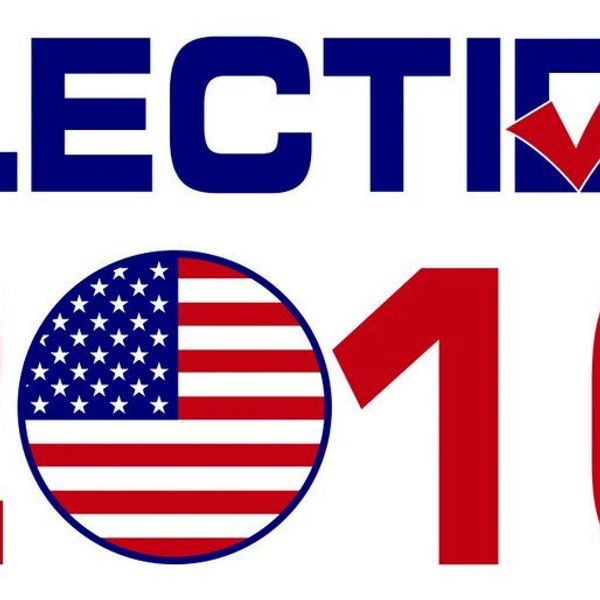1799-1828
The Democratic-Republican Party
Formed by James Madison and Thomas Jefferson, the second political party in the U.S. was formed in opposition to the Federalist party. The party was formed to counter constitutionalist ideals -- to support states' rights. They strongly warned against national debt.
1828-1833
Democratic Party
Formed by Andrew Jackson and Martin Van Buren, the modern democratic party developed in 1828 after an internal dispute with the Democratic- Republican Party. Early Democrats believed in a agrarian society, a society dependent on the agriculture it produces. They supported individual liberty versus centralized government.
The National Republican Party
Founded to oppose Jacksonian ideals, the party was officially founded in 1825, leaders include John Quincy Adams, Henry Clay, and Daniel Webster. This party also laid claim to Jeffersoniasm, but also to nationalism by supporting tarriffs and a national bank. The Party merged with the Whig Party in 1833.
1833- 1854
Democratic Party
Still the same party as when formed, in light of new social issues, they did not lend support for reformation as that would call for a more active government. They had no sympathy for humanitarian issues: the plight of American Indians or slavery. They denounced ideals of a public education system as it would take away influence of parents and diminish church schools.
Whig Party
Henry Clay and Daniel Webster are known as the leaders of this political party. The party supported a public education system in an effort to tame children and turn them into contributing members of society. They sought to modernize and industrialize America, and also proposed prohibition in an effort to support morality during the Protestant reformation. Social issues and the death of its founders effectively destroyed the Whig Party in 1854, causing its members to run to several other political parties.
1854-1900
Democratic Party
The party saw a marked divide when the Civil War began in 1861, causing their party to falter and allowing a Republican president to rise to power. The party was led by Grover Cleveland and Samuel J. Tilden, who represented mercantilism, banking, and railroad interests. They opposed imperialism, overseas expansion, and fought for the gold standard and crusaded against corruption, high taxes, and tariffs
Republican Party
The modern Republican party was formed in 1854 in the northern states and was made a home by remnants of previous fallen parties including ex-Whigs, ex-free soldiers, anti-slavery activists and modernizers. Republicans saw the expansion of slavery as evil and sought to preserve the union and protect American rights. Elected in 1961, Abraham Lincoln became the first Republican president. They supported business, hard money (gold standard), high tarriffs, high wages, high profits, generous pensions for Union veterans, and (after 1893) the annexation of Hawaii. Early Republicans also supported prohibition.
1900-1960
Democratic Party
This era in Democratic history marks the beginning of liberalism sparked by FDR's New Deal policies. They supported regulation of business (especially finance and banking), promotion of labor unions, as well as federal spending to aid the unemployed, help distressed farmers, and undertake large-scale public works projects. The Democratic party divided into liberals of the North and conservative voters in the South. African Americans switched loyalties to the Democratic Party after the integration of the military and embrace of proposed civil rights legislation.
Republican Party
Pro-business policies seemed to boost the country's economy and popularity of the Republican Party until the Great Depression began in 1929 under Herbert Hoover's regime. The Republican party, likewise, developed into two opposing sects as well: the "Old Rights" who though the New Deal programs were socialist and a small liberal sect in the northeast who supported many of the New Deal policies. Most conservatives in the South joined Republicans.
1960-1980
Democratic Party
John F. Kennedy brought in many new young voters to the Democratic party as a reflection of liberal ideals. He implemented a host of social programs and public works projects, along with enhanced support of a national space program. However, the war in Vietnam war effectively drove away many young voters and left the Democratic party in disarray.
Republican Party
The Republican party's consistency rallied supporters and they fell into power for consecutive terms. Ronald Reagan's presidency is said to embody conservative ideals and he set the standard for future candidates of the Republican party. The liberal wing of the party died away in 1970.
1980-present
Democratic Party
Bill Clinton ran under the self given title, "New Democrat." The new democratic ways were centrally economic but with a socially progressive agenda. To appeal to both liberals and fiscal conservatives, Democrats began to advocate for a more balanced budget and market economy tempered by government intervention (mixed economy) along with a continued emphasis on social justice and affirmative action. New democrats were the first to introduce and popularize a system that combined socialism with capitalism. The party continues to pledge promises of an economy that does not cater to the wealthy. Hillary Clinton heads the party campaigning on the virtues of social justice (pro-choice) and increasing taxes on the wealthy.
Republican Party
The Republican party has since been defined by social conservatism, a preemptive war foreign policy intended to defeat terrorism and promote global democracy, support for gun ownership, and government deregulation. The Republican party supports decreased taxes across all brackets and believes it is essential to lower the national debt to ensure economic security for future generations. Members of the Republican party are typically strict constitutionalists. Donald Trump is the current presidential nominee running on promises of stricter immigration laws he believes are ruining the economy, a more stringent plan of how to take town foreign terrorists, and a focus on pro-business policies.
What the evolution of these two distinct political parties reveal is that they generally take on the values and issues that the current generation is facing. They have never been one or the other; they evolve based on the current crises. What we are facing now is reflected in the two starkly opposite parties that are in position today.
To George Washington's grave dissatisfaction, there will more than likely always be two dominant political parties, representing our eternal opposition to those who feel differently than we do and our innate stubbornness.
Our issues today revolve around the distractions of a technologically advanced society and a great moral divide. It is not wrong to choose a side, even if it is not one or the other. In fact, for the purposes of this election and political debate, you must. So, what side are you on?





















